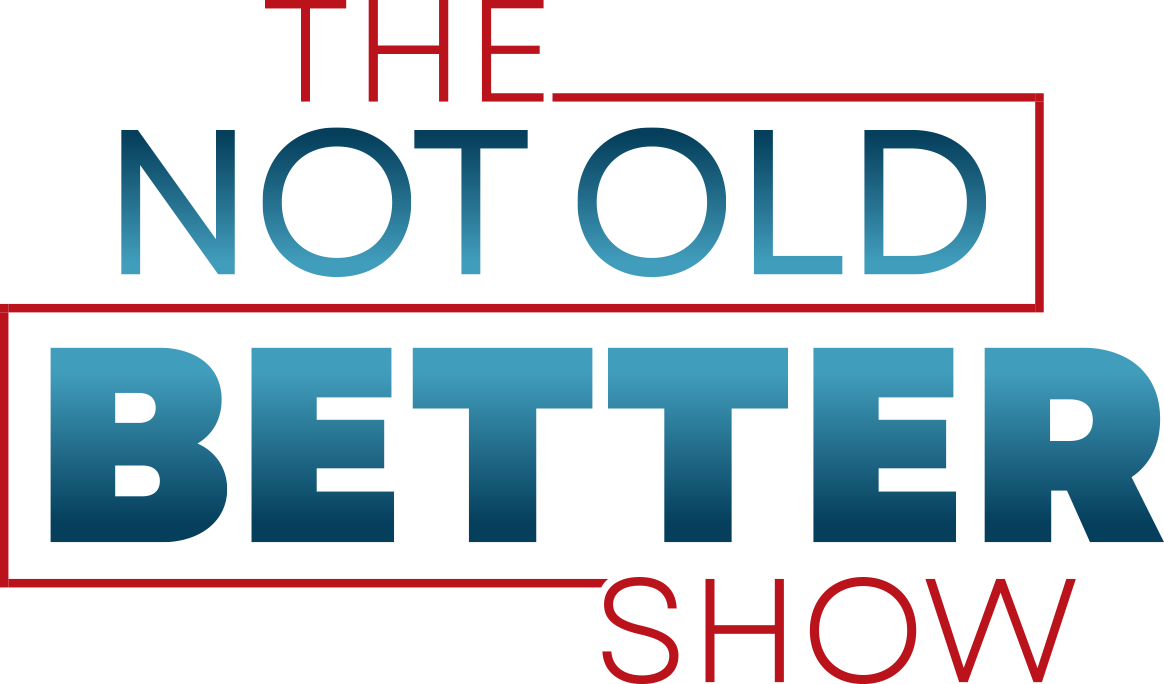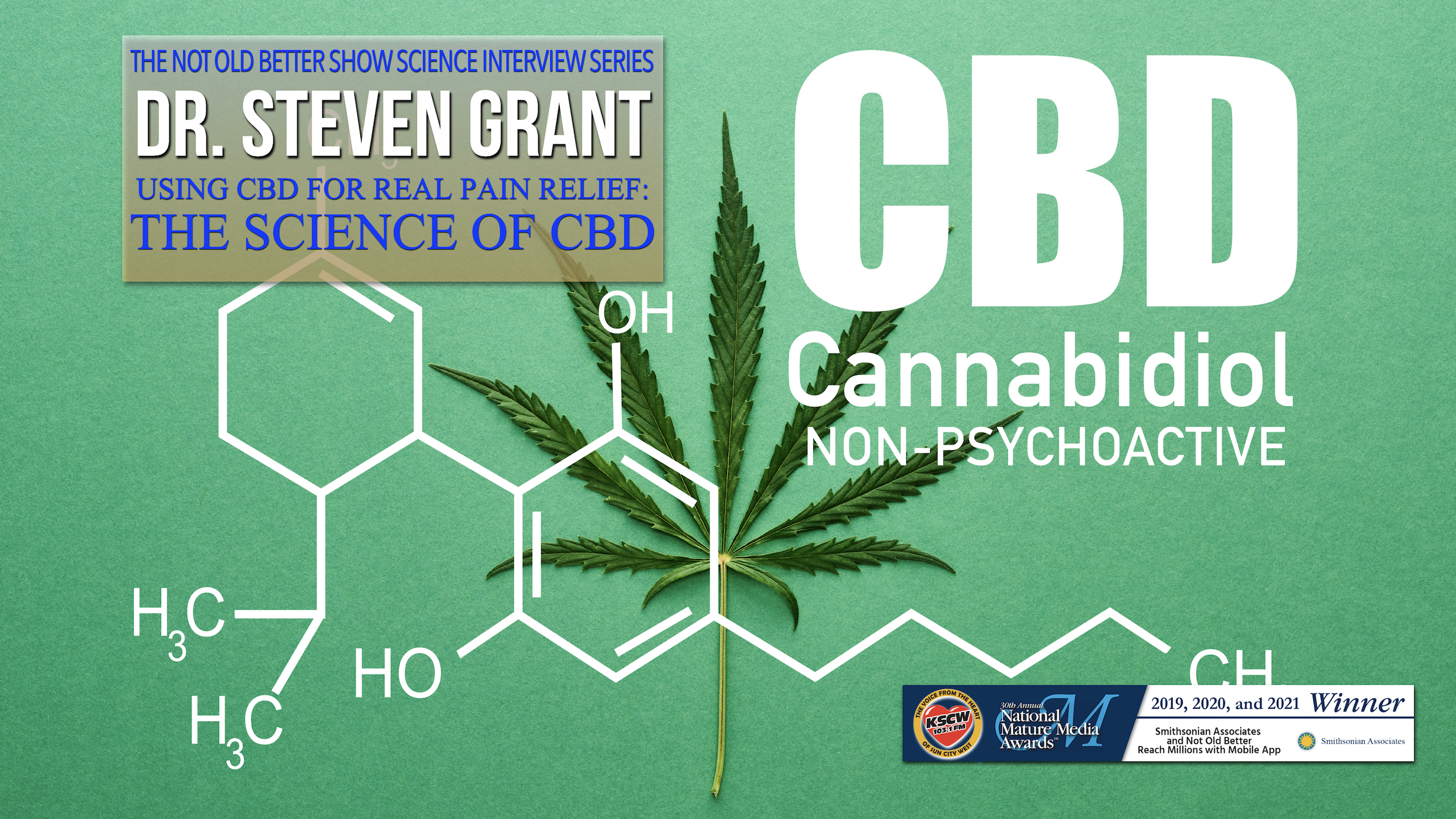The Science of CBD – Dr. Steven Grant
The Not Old Better Show, Inside Science Interview Series
Welcome to The Not Old Better Show on KSCW. I’m your host, Paul Vogelzang, and as part of our Smithsonian Associates Science Makes Us Safer series, our guest today is Dr. Steven Grant. Dr. Steven Grant is a neuroscientist and is formerly the Senior Program Officer at the National Institute on Drug Abuse at the National Institutes of Health, and we’ll be examining today what the research on cannabidiol, or CBD, —and more importantly — what the science has discovered about this elusive chemical’s potential benefits for chronic pain and the potential risks.
Pain can be physical. It can also be emotional. And we’re going to talk about physical pain on today’s show on KSCW and we’re going to discuss the science of CBD, and how CBD can help with the pain.
People with chronic pain are increasingly turning to cannabis or CBD, which is an ingredient in marijuana and hemp that does not produce a high).
In 2020, the National Institutes of Health (NIH), reviewed hundreds of studies and published The Role of Cannabidiol (CBD) in Chronic Pain Management, and found substantial evidence for its use in chronic pain. Additionally, the NIH found that cannabis and CBD can be helpful and relatively safe for older adults. I’ll put citations to these studies in the notes today on our website.
But, CBD may cause dizziness or confusion in high doses, affect blood pressure and heart rate, and interact with medications such as blood thinners and anti-seizure drugs. If you want to try CBD for pain, be sure to tell your primary care provider and “start low and go slow.” Your primary care provider can help with finding the right dose that helps your symptoms.
Of the more than 100 related chemicals found in cannabis plants, cannabidiol (CBD) has become almost as well-known as tetrahydrocannabinol (THC), seemingly overnight. Now widely available in retail stores and websites, it has suddenly emerged as a popular consumer product.
But, despite the claims and even some research, it has been difficult to demonstrate exactly what CBD does. It neither produces a high like THC nor does it have the same biological actions. And although promoted as a remedy for a wide variety of conditions, only one CBD product has received FDA approval—for the treatment of a specific type of severe childhood epilepsy.
Much remains unknown about the effects, mechanism, long-term consequences, and legality of CBD, and we’ll talk to Dr. Steven Grant about all that and more, so please join me in welcoming to The Not Old Better Show on KSCW, Dr. Steven Grant.
Dr. Grant has a brief disclaimer and then we’ll proceed with our interview.
My thanks to Dr. Steven Grant for his time, expertise, and thoughtful preparation in joining me today about a complex subject. My thanks, always, to the Smithsonian team for all they do to support the show. Of course, my thanks to you, our wonderful Not Old Better Show audience here on KSCW. Please keep your emails coming to me at info@notold-better.com. Remember, let’s talk about better. The Not Old Better Show on KSCW. Thanks, everybody.


